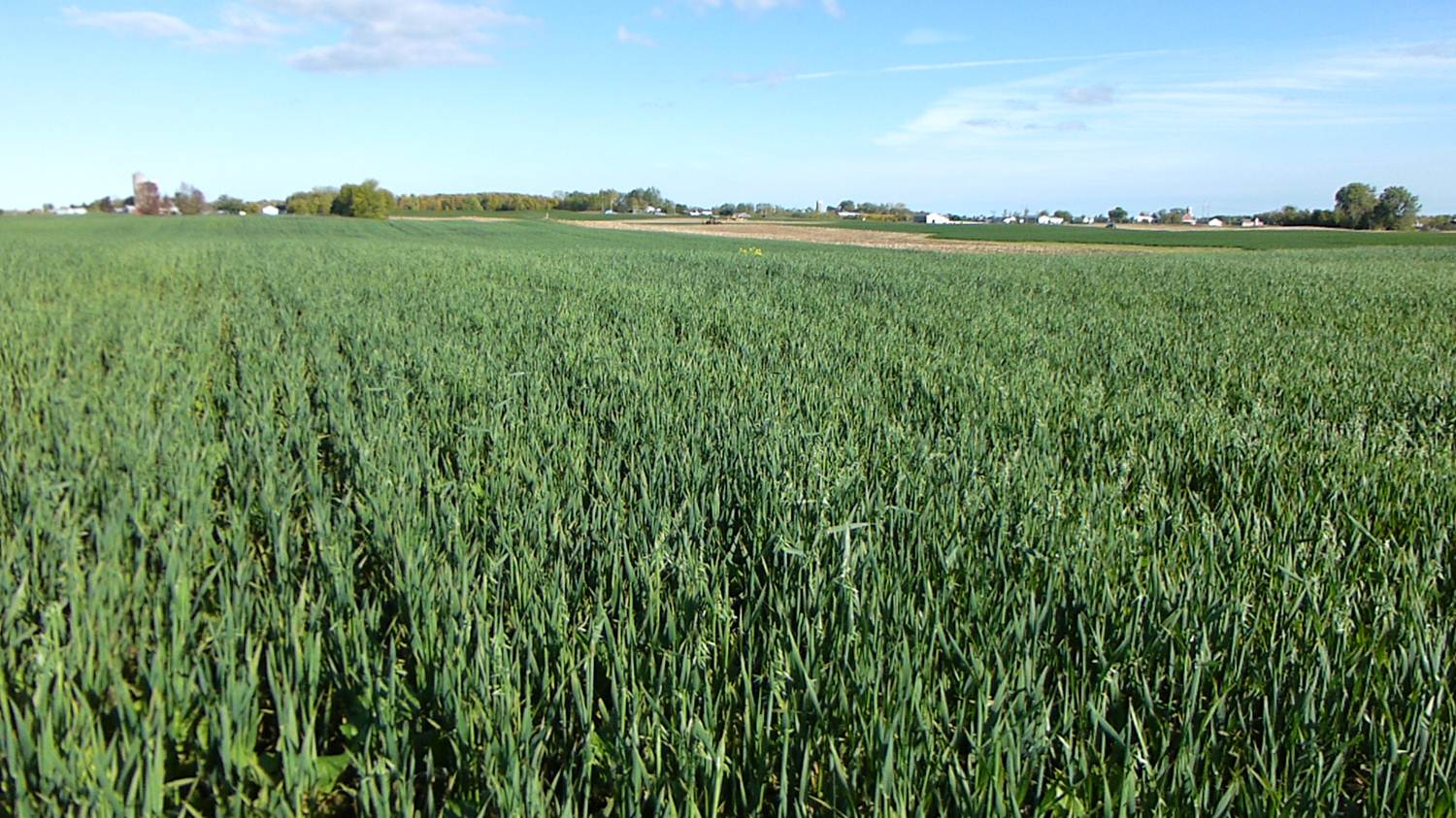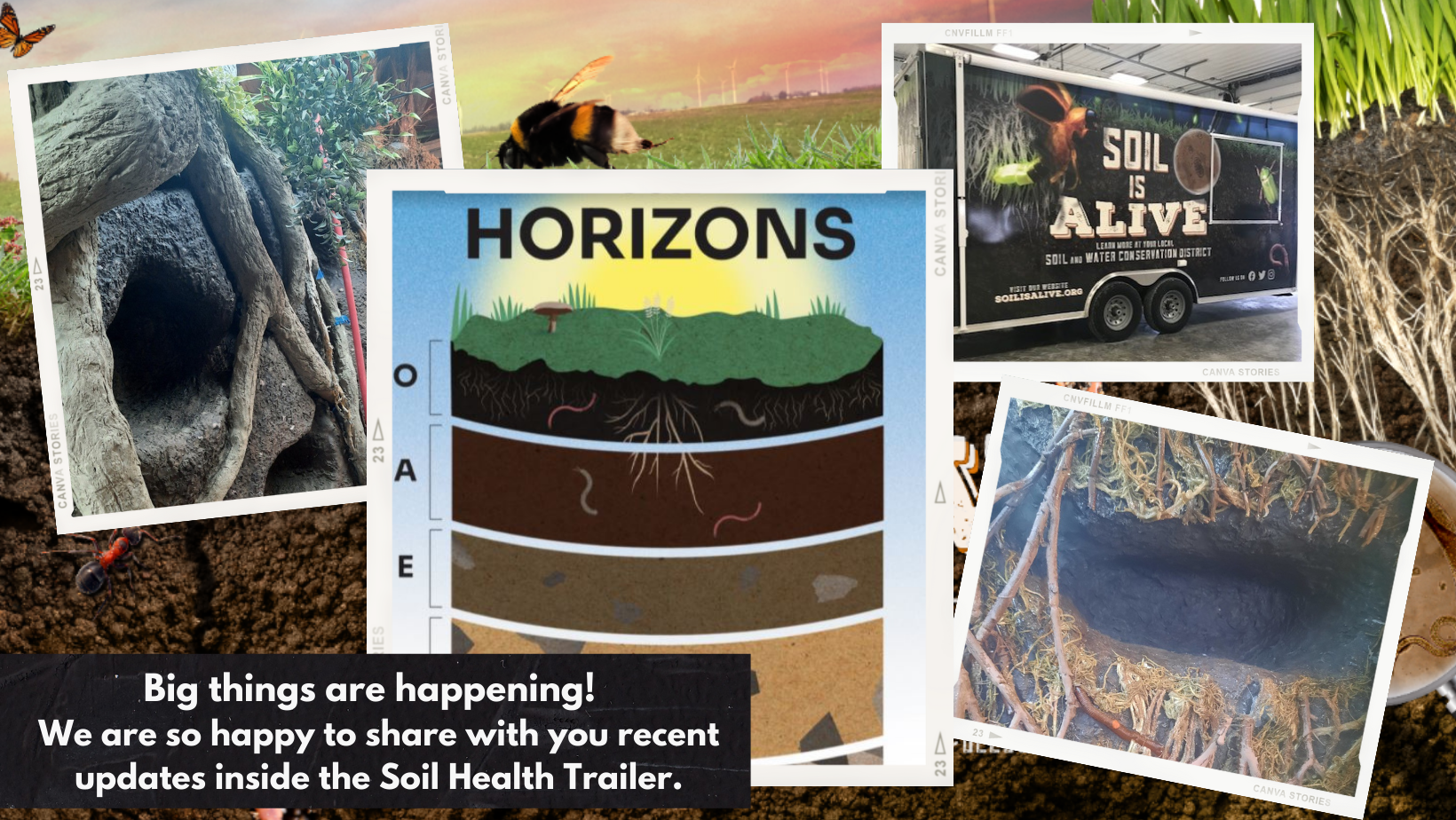| Inside this issue: - Invasive Species Alert - Spotted Laternfly
- Upcoming Events
- Native Tree & Shrub Sale
- Rain on Main
- Local Working Group
- Native Alternatives to Common Invasive Species
- Emerging Alternatives to Common Invasive Species
- Restoring HOA Native Landscapes
- Plant This Not That
- Mulching with Organic Materials in the Small Community Garden
- Cover Crop Insurance Program
- Meet David Bradway - Hamilton County SWCD's Conservation Administrator
- Photography Contest Winners
- First Annual Hamilton County Invasive Species Awareness Week
|
|
|
| Upcoming Programs, Fundraisers, & Events |
| Every fall the SWCD brings you a wide selection of native trees and shrubs for your landscape and conservation needs. This year we have added 11 new native species to our inventory. Indiana native trees are the best choice for your project because they are uniquely suited to our soils, weather, and pests AND they have unique and crucial relationships with the insects, pollinators, and birds our ecosystem depends on. The tree sale is the SWCD's biggest annual fundraiser and all proceeds go right back in to conservation in Hamilton County. |
| |
|
| Rain on Main is an annual event held to increase awareness of water quality and conservation in Carmel and to raise funds for water education signage in Carmel Clay Parks. Join in the fun and see 20 rain barrels painted by local artists! The barrels will be on display along Main Street in Carmel’s Art and Design District August 13-20, 2021. Vote for your favorite on the Rain on Main Facebook page and place a bid in the silent auction to take a barrel home! See the barrels and learn more at the link below. |
| |
|
| | Join HIP for a presentation by Mary Welz, SICIM Regional Specialist, to learn about some emerging invasive plants to watch out for and report here in Central Indiana. There will be information on identification, negative impacts, and distribution, as well as options for reporting these species if you encounter them escaping into natural areas. |
| |
|
| Join HIP for a presentation by Mary Welz, SICIM Regional Specialist, to learn about some emerging invasive plants to watch out for and report here in Central Indiana. There will be information on identification, negative impacts, and distribution, as well as options for reporting these species if you encounter them escaping into natural areas. |
| |
|
| |
|
| | Plant this, not that! - by Taylor Wilson, Urban Conservation Tech. Considering removing invasive bushes and trees in your yard? Congrats! You’re taking a major step in the control of invasive species not only in your yard, but across the entire state. These species not only produce small offspring plants that pop-up in your home gardens, but also are distributed far and wide when birds eat the berries and carry them away. If your plant has berries or seeds, it is spreading into our natural areas. By removing these species from your yard, you are not only protecting you and your neighbor’s properties, but also helping to preserve the beautiful parks and public lands. Diversity of plants is key when you want to have healthier soil, protect water resources, provide habitat and food for native wildlife and pollinators, and have a more colorful natural area. This year we will have several native shrubs and trees that could make great replacements for these species through our annual native tree and shrub sale. To learn more, click the link below. |
| |
|
| Mulching with Organic Materials - by Marian Rodriquez-Soto, Regional Urban Soil Health Specialist Even if not considered the most exciting part of gardening, mulching can be a simple source of many benefits. Some benefits of mulching are weed suppression, soil moisture retention, increased soil organic matter, temperature regulation, erosion reduction, decreased soil compaction, and the improvement of a garden's appearance, among others. Mulch supports the soil health principle of keeping the ground covered and is commonly defined as any plant or suitable material applied to the land surface. In other words, almost any material used to cover the ground could be considered a mulch, and could be synthetic or organic. |
| GrowLocal Urban Gardens Network –a garden network in the greater Lafayette, Indiana area– uses two different mulches at a couple of their gardens. One of the growers and garden managers, Harry Smith, uses wheat straw and wood chips donated from various sources. Harry applies wheat straw for annual crops and wood chips for permanent walkways and perennials, including fruits, trees, bushes, nuts, and berries. |
|
|
| Crop Insurance Premium Discount Program - by Mark McCauley, Resource Conservationist |
|  | |
|
The Indiana State Department of Agriculture (ISDA), The Nature Conservancy and partners throughout the state have worked with the USDA Risk Management Agency (RMA) to establish an initiative in the West Fork Upper White River watershed counties to increase cover crop usage in Indiana. Our focus for this program is to target first time cover crop users in an effort to expand awareness and the adoption of cover crops as a tool to improve farm resiliency. This program is providing a $5/acre crop insurance premium discount for farmers who employ a cover crop on insured acres in the Upper White River watershed. We will be promoting year round to raise awareness and give farmers time to plan for a cover crop in the Fall. More detailed info can be found at the link to the left. |
|
|
|
|
| Hamilton County Soil & Water Conservation District News |
| What Does Conservation Mean to Me? - By David Bradway, Conservation Administrator When I think about conservation, I consider both the bigger picture of conservation on a broad scale and a local level. How is what I am doing at home affecting the county, state, region, etc.? I think about the miles I drive to work and wonder what difference it would make if I rode my bicycle to commute once or a few times per week. If I remove invasive species on my property and explain why to my neighbors, will this affect the overall program of invasive removal? Where is the water that is running off my roof, gutters, and property ending up, and how can I conserve this water to help ensure the water quality of ponds and streams around me? |
| |
|
| Photography Contest Winners Announced - by Kris Gertz, Office Coordinator The judging for the 7th Annual Hamilton County SWCD Photo Contest is complete. Thank you to all are photographers, judges, and social media judges. This year’s judges Micheal Jack, Hamilton County resident and talented photographer, Emily Archer, Graduate Art student, and our Soil & Water Conservation District Board Member, Amanda Egler selected winners from many beautiful entries! Winners in the Nature’s Renewal contest were Steve Gass, adult and Ben Boyce, youth. |
| | New this Year is the People’s Choice Award. Winners were chosen on our Social media platforms. The adult winners was Tristen Defoe, adult and youth winner Ben Boyce. |
| | |
|
| First Annual Hamilton County Invasive Species Awareness Week - by Claire Lane, Urban Conservationist Hamilton County Commissioners proclaimed May 15-22, 2021 the first ever Invasive Species Awareness Week (ISAW) in Hamilton County. This effort was led by the Hamilton County Invasives Partnership (HIP) and Soil and Water Conservation District (SWCD). A variety of events were held designed to bring awareness to the general public on the number of invasive species in Hamilton County and the destruction and disturbance to our ecosystems they cause. |
| The first of what will be a series of boot brush stations was opened at Cool Creek Park. These stations have invasive species educational signage and encourage trail users to wipe clean their shoes using the attached boot brush. Our shoes and gear can carry microscopic seeds of invasive species so making sure your shoes, gear, and pet paws are clean before entering and upon exiting a trail can help limit the spread of invasives from site to site. These stations will be located at various trailheads across the county but the first is now available at the main trailhead at Cool Creek Park. More information about the activities listed above, upcoming Weed Wrangles and HIP events, and invasive species info can be found online. See the link below. |
| |
|
| Come see us at Pathway to Water Quality at the Indiana State Fair - by Diane Turner, Conservation Technician & Outreach Assistant The Indiana State Fair is back! The staff at Hamilton County SWCD will be helping with education and outreach at the Pathway to Water Quality Exhibit through August 22, 2021. The exhibit is located on the northeast side of the fairgrounds. We hope to see you at the Indiana State Fair. |
| |
|
| The Soil Is Alive: Soil Health Trailer is a partnership of Hamilton, Madison, Clinton, and Boone County SWCD's. Funding has been provided by Clean Water Indiana and Duke Energy Foundation. |
|  |
|
|
|
| | Friend of Conservation David Brost Duane & Mary Rinker
Kim Gauen John South
Jennifer Hensley Beth Williams
Terry Luley Craig Wind |
|
|
Compassionate Conservationist Dallas Hester Zac Sprunger |
|
|
| Phil Flanagan Steve Hilger
Becks Superior Hybrids Karen Hymbaugh |
|
|
| |
|
| | Hamilton County Soil & Water Conservation District 1717 Pleasant Street | Noblesville, IN 46060 317-773-2181 | soil.water@hamiltoncounty.in.gov |
| |
|
| Hamilton County SWCD
1717 Pleasant St. Suite 100 | Noblesville, Indiana 46060
3177732181 | soil.water@hamiltoncounty.in.gov |
| | |
|
| |
|
|